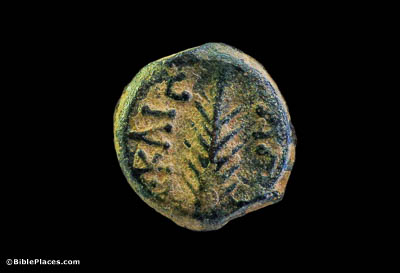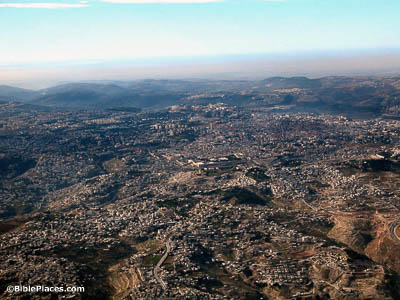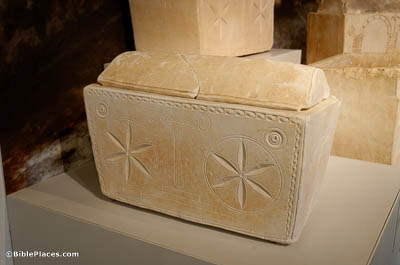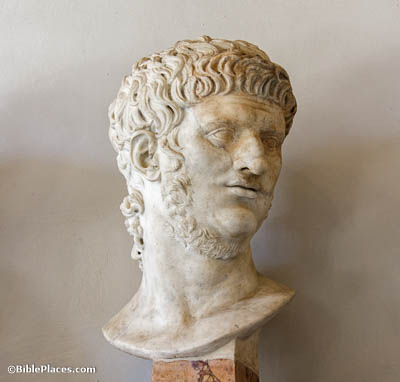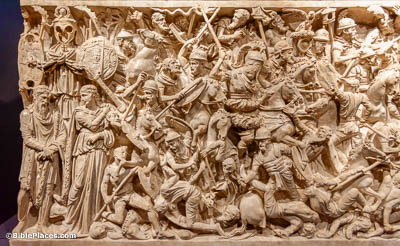Festus therefore, having arrived in the province . . . (Acts 25:1)
It is generally thought that Porcius Festus succeeded Felix as governor around AD 59. The coin shown here was likely minted by Festus, but since scholars do not agree upon the year when Festus succeeded Felix, there is some uncertainty as to which procurator minted this coin. It depicts a palm branch and bears the Latin inscription “of Caesar,” alongside an inscription that indicates it was minted in the fifth year of Nero (either AD 58 or 59).
